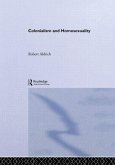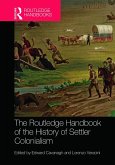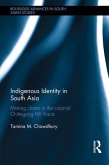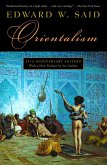German Colonialism and National Identity
Herausgeber: Perraudin, Michael; Zimmerer, Juergen
German Colonialism and National Identity
Herausgeber: Perraudin, Michael; Zimmerer, Juergen
- Gebundenes Buch
- Merkliste
- Auf die Merkliste
- Bewerten Bewerten
- Teilen
- Produkt teilen
- Produkterinnerung
- Produkterinnerung
"Simultaneously published in the UK"--T.p. verso.
Andere Kunden interessierten sich auch für
![Colonialism and Homosexuality Colonialism and Homosexuality]() Robert AldrichColonialism and Homosexuality198,99 €
Robert AldrichColonialism and Homosexuality198,99 €![The British, Soccer and Identity in the Caribbean The British, Soccer and Identity in the Caribbean]() Roy McCreeThe British, Soccer and Identity in the Caribbean194,99 €
Roy McCreeThe British, Soccer and Identity in the Caribbean194,99 €![The Routledge Handbook of the History of Settler Colonialism The Routledge Handbook of the History of Settler Colonialism]() The Routledge Handbook of the History of Settler Colonialism412,99 €
The Routledge Handbook of the History of Settler Colonialism412,99 €![Indigenous Identity in South Asia Indigenous Identity in South Asia]() Tamina ChowdhuryIndigenous Identity in South Asia229,99 €
Tamina ChowdhuryIndigenous Identity in South Asia229,99 €![Landscape and Identity in North America's Southern Colonies from 1660 to 1745 Landscape and Identity in North America's Southern Colonies from 1660 to 1745]() Catherine ArmstrongLandscape and Identity in North America's Southern Colonies from 1660 to 1745131,99 €
Catherine ArmstrongLandscape and Identity in North America's Southern Colonies from 1660 to 1745131,99 €![Orientalism Orientalism]() Edward W. SaidOrientalism13,99 €
Edward W. SaidOrientalism13,99 €![Imperial Island Imperial Island]() Charlotte Lydia RileyImperial Island10,99 €
Charlotte Lydia RileyImperial Island10,99 €-
-
-
"Simultaneously published in the UK"--T.p. verso.
Hinweis: Dieser Artikel kann nur an eine deutsche Lieferadresse ausgeliefert werden.
Hinweis: Dieser Artikel kann nur an eine deutsche Lieferadresse ausgeliefert werden.
Produktdetails
- Produktdetails
- Verlag: Taylor & Francis
- Seitenzahl: 350
- Erscheinungstermin: 1. Mai 2010
- Englisch
- Abmessung: 242mm x 161mm x 25mm
- Gewicht: 620g
- ISBN-13: 9780415964777
- ISBN-10: 0415964776
- Artikelnr.: 25400229
- Herstellerkennzeichnung
- Libri GmbH
- Europaallee 1
- 36244 Bad Hersfeld
- gpsr@libri.de
- Verlag: Taylor & Francis
- Seitenzahl: 350
- Erscheinungstermin: 1. Mai 2010
- Englisch
- Abmessung: 242mm x 161mm x 25mm
- Gewicht: 620g
- ISBN-13: 9780415964777
- ISBN-10: 0415964776
- Artikelnr.: 25400229
- Herstellerkennzeichnung
- Libri GmbH
- Europaallee 1
- 36244 Bad Hersfeld
- gpsr@libri.de
Juergen Zimmerer is Professor of History at the University of Hamburg in Germany. His areas of research and publication include German Colonialism, Genocide Studies, the Holocaust and African and Global History. Michael Perraudin is Professor of German at the University of Sheffield, and has previously taught at Trinity College, Dublin, and the University of Birmingham. His research focus is on 19th-century German literature, especially that of the Biedermeier/Vormärz, and its social and political contexts. His books include Literature, the 'Volk' and the Revolution in Mid-19th-Century Germany (Oxford: Berghahn, 2000) and Formen der Wirklichkeitserfassung nach 1848. Deutsche Literatur und Kultur vom Nachmärz bis zur Gründerzeit in europäischer Perspektive (co-edited with Helmut Koopmann, Bielefeld: Aisthesis, 2003). He has also published numerous articles on 19th- and 20th-century literary authors.
Introduction. German Colonialism and National Identity. Michael Perraudin
and Jürgen Zimmerer Section A. Colonialism from before the Empire Chapter
1. Imperialism, Race, and Genocide at the Paulskirche: Origins, Meanings,
Trajectories. Brian Vick Chapter Two. Time, Identity and Colonialism in
German Travel Writing on Africa, 1848-1914. Tracey Dawe Chapter 3. Gray
Zones: On the Inclusion of "Poland" in the Study of German Colonialism.
Kristin Kopp Section B. Colonialism and Popular Utterance in the Imperial
Phase Chapter 4. The War that Scarcely Was: The Berliner Morgenpost and the
Boxer Uprising. Yixu Lü Chapter 5. Boy's and Girl's Own Empires: Gender and
the Uses of the Colonial World in Kaiserreich Youth Magazines. Jeffrey
Bowersox Chapter 6. Picturing Genocide in German Consumer Culture,
1904-1910. David Ciarlo Chapter 7. The Visual Representation of Blackness
during German Imperialism around 1900. Volker Langbehn Chapter 8.
Colonialism and the Simplification of Language: Germany's Kolonial-Deutsch
Experiment. Kenneth Orosz Section C. Colonialism and the End of Empire
Chapter 9. Fraternity, Frenzy, and Genocide in German War Literature,
1906-1936. Jörg Lehmann Chapter 10. Colonial Heroes: German Colonial
Identities in Wartime, 1914-1918. Michael Pesek Chapter 11. Crossing
Boundaries: German Women in Africa, 1919-1933. Britta Schilling Chapter 12.
Abuses of German Colonial History: The Character of Carl Peters as Weapon
for völkisch and National-Socialist Discourses: Anglophobia, Anti-Semitism
and Aryanism. Constant Kpao Sarè Chapter 13. "Loyal Askari" and "Black
Rapist"--Two Images in the German Discourse on National Identity and their
Impact on the Lives of Black People in Germany, 1918-1945. Susann Lewerenz
Section D. German Colonialism in the Era of Decolonization Chapter 14.
(Post-) Colonial Amnesia? German Debates on Colonialism and Decolonization
in the Post-war Era. Monika Albrecht Chapter 15. Denkmalsturz. The German
Student Movement and German Colonialism. Ingo Cornils Chapter 16.
Vergangenheitsbewältigung à la française: Post-Colonial Memories of the
Herero Genocide and 17 October 1961. Kathryn Jones Chapter 17. The
Persistence of Fantasies. Colonialism as Melodrama on German Television.
Wolfgang Struck Section E. Local Histories, Memories, Legacies Chapter 18.
Communal Memory Events and the Heritage of the Victims. The Persistence of
the Theme of Genocide in Namibia. Reinhart Kössler Chapter 19. The Genocide
in "German South-West Africa" and the Politics of Commemoration--How (Not)
to Come to Terms with the Past. Henning Melber Chapter 20. The Struggle for
Genocidal Exclusivity. The Perception of the Murder of the Namibian Herero
(1904-08) in the Age of a New International Morality. Dominik J. Schaller
Chapter 21. Narratives of a "Model Colony": German Togoland in Written and
Oral Histories. Dennis Laumann Chapter 22. Suspended between Worlds? The
Discipline of Germanistik in sub-Saharan Africa. Arndt Witte
and Jürgen Zimmerer Section A. Colonialism from before the Empire Chapter
1. Imperialism, Race, and Genocide at the Paulskirche: Origins, Meanings,
Trajectories. Brian Vick Chapter Two. Time, Identity and Colonialism in
German Travel Writing on Africa, 1848-1914. Tracey Dawe Chapter 3. Gray
Zones: On the Inclusion of "Poland" in the Study of German Colonialism.
Kristin Kopp Section B. Colonialism and Popular Utterance in the Imperial
Phase Chapter 4. The War that Scarcely Was: The Berliner Morgenpost and the
Boxer Uprising. Yixu Lü Chapter 5. Boy's and Girl's Own Empires: Gender and
the Uses of the Colonial World in Kaiserreich Youth Magazines. Jeffrey
Bowersox Chapter 6. Picturing Genocide in German Consumer Culture,
1904-1910. David Ciarlo Chapter 7. The Visual Representation of Blackness
during German Imperialism around 1900. Volker Langbehn Chapter 8.
Colonialism and the Simplification of Language: Germany's Kolonial-Deutsch
Experiment. Kenneth Orosz Section C. Colonialism and the End of Empire
Chapter 9. Fraternity, Frenzy, and Genocide in German War Literature,
1906-1936. Jörg Lehmann Chapter 10. Colonial Heroes: German Colonial
Identities in Wartime, 1914-1918. Michael Pesek Chapter 11. Crossing
Boundaries: German Women in Africa, 1919-1933. Britta Schilling Chapter 12.
Abuses of German Colonial History: The Character of Carl Peters as Weapon
for völkisch and National-Socialist Discourses: Anglophobia, Anti-Semitism
and Aryanism. Constant Kpao Sarè Chapter 13. "Loyal Askari" and "Black
Rapist"--Two Images in the German Discourse on National Identity and their
Impact on the Lives of Black People in Germany, 1918-1945. Susann Lewerenz
Section D. German Colonialism in the Era of Decolonization Chapter 14.
(Post-) Colonial Amnesia? German Debates on Colonialism and Decolonization
in the Post-war Era. Monika Albrecht Chapter 15. Denkmalsturz. The German
Student Movement and German Colonialism. Ingo Cornils Chapter 16.
Vergangenheitsbewältigung à la française: Post-Colonial Memories of the
Herero Genocide and 17 October 1961. Kathryn Jones Chapter 17. The
Persistence of Fantasies. Colonialism as Melodrama on German Television.
Wolfgang Struck Section E. Local Histories, Memories, Legacies Chapter 18.
Communal Memory Events and the Heritage of the Victims. The Persistence of
the Theme of Genocide in Namibia. Reinhart Kössler Chapter 19. The Genocide
in "German South-West Africa" and the Politics of Commemoration--How (Not)
to Come to Terms with the Past. Henning Melber Chapter 20. The Struggle for
Genocidal Exclusivity. The Perception of the Murder of the Namibian Herero
(1904-08) in the Age of a New International Morality. Dominik J. Schaller
Chapter 21. Narratives of a "Model Colony": German Togoland in Written and
Oral Histories. Dennis Laumann Chapter 22. Suspended between Worlds? The
Discipline of Germanistik in sub-Saharan Africa. Arndt Witte
Introduction. German Colonialism and National Identity. Michael Perraudin
and Jürgen Zimmerer Section A. Colonialism from before the Empire Chapter
1. Imperialism, Race, and Genocide at the Paulskirche: Origins, Meanings,
Trajectories. Brian Vick Chapter Two. Time, Identity and Colonialism in
German Travel Writing on Africa, 1848-1914. Tracey Dawe Chapter 3. Gray
Zones: On the Inclusion of "Poland" in the Study of German Colonialism.
Kristin Kopp Section B. Colonialism and Popular Utterance in the Imperial
Phase Chapter 4. The War that Scarcely Was: The Berliner Morgenpost and the
Boxer Uprising. Yixu Lü Chapter 5. Boy's and Girl's Own Empires: Gender and
the Uses of the Colonial World in Kaiserreich Youth Magazines. Jeffrey
Bowersox Chapter 6. Picturing Genocide in German Consumer Culture,
1904-1910. David Ciarlo Chapter 7. The Visual Representation of Blackness
during German Imperialism around 1900. Volker Langbehn Chapter 8.
Colonialism and the Simplification of Language: Germany's Kolonial-Deutsch
Experiment. Kenneth Orosz Section C. Colonialism and the End of Empire
Chapter 9. Fraternity, Frenzy, and Genocide in German War Literature,
1906-1936. Jörg Lehmann Chapter 10. Colonial Heroes: German Colonial
Identities in Wartime, 1914-1918. Michael Pesek Chapter 11. Crossing
Boundaries: German Women in Africa, 1919-1933. Britta Schilling Chapter 12.
Abuses of German Colonial History: The Character of Carl Peters as Weapon
for völkisch and National-Socialist Discourses: Anglophobia, Anti-Semitism
and Aryanism. Constant Kpao Sarè Chapter 13. "Loyal Askari" and "Black
Rapist"--Two Images in the German Discourse on National Identity and their
Impact on the Lives of Black People in Germany, 1918-1945. Susann Lewerenz
Section D. German Colonialism in the Era of Decolonization Chapter 14.
(Post-) Colonial Amnesia? German Debates on Colonialism and Decolonization
in the Post-war Era. Monika Albrecht Chapter 15. Denkmalsturz. The German
Student Movement and German Colonialism. Ingo Cornils Chapter 16.
Vergangenheitsbewältigung à la française: Post-Colonial Memories of the
Herero Genocide and 17 October 1961. Kathryn Jones Chapter 17. The
Persistence of Fantasies. Colonialism as Melodrama on German Television.
Wolfgang Struck Section E. Local Histories, Memories, Legacies Chapter 18.
Communal Memory Events and the Heritage of the Victims. The Persistence of
the Theme of Genocide in Namibia. Reinhart Kössler Chapter 19. The Genocide
in "German South-West Africa" and the Politics of Commemoration--How (Not)
to Come to Terms with the Past. Henning Melber Chapter 20. The Struggle for
Genocidal Exclusivity. The Perception of the Murder of the Namibian Herero
(1904-08) in the Age of a New International Morality. Dominik J. Schaller
Chapter 21. Narratives of a "Model Colony": German Togoland in Written and
Oral Histories. Dennis Laumann Chapter 22. Suspended between Worlds? The
Discipline of Germanistik in sub-Saharan Africa. Arndt Witte
and Jürgen Zimmerer Section A. Colonialism from before the Empire Chapter
1. Imperialism, Race, and Genocide at the Paulskirche: Origins, Meanings,
Trajectories. Brian Vick Chapter Two. Time, Identity and Colonialism in
German Travel Writing on Africa, 1848-1914. Tracey Dawe Chapter 3. Gray
Zones: On the Inclusion of "Poland" in the Study of German Colonialism.
Kristin Kopp Section B. Colonialism and Popular Utterance in the Imperial
Phase Chapter 4. The War that Scarcely Was: The Berliner Morgenpost and the
Boxer Uprising. Yixu Lü Chapter 5. Boy's and Girl's Own Empires: Gender and
the Uses of the Colonial World in Kaiserreich Youth Magazines. Jeffrey
Bowersox Chapter 6. Picturing Genocide in German Consumer Culture,
1904-1910. David Ciarlo Chapter 7. The Visual Representation of Blackness
during German Imperialism around 1900. Volker Langbehn Chapter 8.
Colonialism and the Simplification of Language: Germany's Kolonial-Deutsch
Experiment. Kenneth Orosz Section C. Colonialism and the End of Empire
Chapter 9. Fraternity, Frenzy, and Genocide in German War Literature,
1906-1936. Jörg Lehmann Chapter 10. Colonial Heroes: German Colonial
Identities in Wartime, 1914-1918. Michael Pesek Chapter 11. Crossing
Boundaries: German Women in Africa, 1919-1933. Britta Schilling Chapter 12.
Abuses of German Colonial History: The Character of Carl Peters as Weapon
for völkisch and National-Socialist Discourses: Anglophobia, Anti-Semitism
and Aryanism. Constant Kpao Sarè Chapter 13. "Loyal Askari" and "Black
Rapist"--Two Images in the German Discourse on National Identity and their
Impact on the Lives of Black People in Germany, 1918-1945. Susann Lewerenz
Section D. German Colonialism in the Era of Decolonization Chapter 14.
(Post-) Colonial Amnesia? German Debates on Colonialism and Decolonization
in the Post-war Era. Monika Albrecht Chapter 15. Denkmalsturz. The German
Student Movement and German Colonialism. Ingo Cornils Chapter 16.
Vergangenheitsbewältigung à la française: Post-Colonial Memories of the
Herero Genocide and 17 October 1961. Kathryn Jones Chapter 17. The
Persistence of Fantasies. Colonialism as Melodrama on German Television.
Wolfgang Struck Section E. Local Histories, Memories, Legacies Chapter 18.
Communal Memory Events and the Heritage of the Victims. The Persistence of
the Theme of Genocide in Namibia. Reinhart Kössler Chapter 19. The Genocide
in "German South-West Africa" and the Politics of Commemoration--How (Not)
to Come to Terms with the Past. Henning Melber Chapter 20. The Struggle for
Genocidal Exclusivity. The Perception of the Murder of the Namibian Herero
(1904-08) in the Age of a New International Morality. Dominik J. Schaller
Chapter 21. Narratives of a "Model Colony": German Togoland in Written and
Oral Histories. Dennis Laumann Chapter 22. Suspended between Worlds? The
Discipline of Germanistik in sub-Saharan Africa. Arndt Witte








